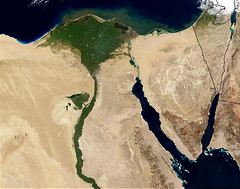| 10872678784 | Bantu | A major African language family. Collective name of a large group of sub-Saharan African languages and of the peoples speaking these languages. Famous for migrations throughout central and southern Africa. |  | 0 |
| 10872678785 | Mesopotamia | A region between the Tigris and Euphrates rivers that developed the first urban societies. In the Bronze Age this area included Sumer and the Akkadian, Babylonian and Assyrian empires, In the Iron Age, it was ruled by the Neo-Assyrian and Neo-Babylonian empires. | 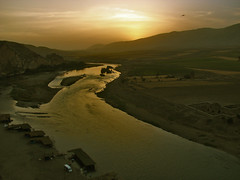 | 1 |
| 10872678786 | Fertile Crescent | The Tigris and Euphrates Rivers gave life to the first known agricultural villages in this area about 10,000 years ago and the first known cities about 5,000 years ago. Includes Mesopotamia, Palestine, and the Nile. | 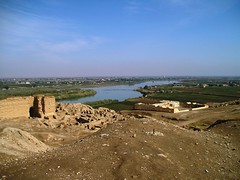 | 2 |
| 10872678787 | Xia CHINA | A legendary Chinese dynasty that was not believed to exist until relatively recently. Walled towns ruled by area-specific kings assembled armies, built cities, and worked bronze. Created pictograms which would evolve in to the first Chinese script. | | 3 |
| 10872678788 | Shang | An early Chinese dynasty. Not a unified Chinese state. Instead rulers and their relatives gave orders through a network of cities. Earliest evidence of Chinese writing comes from this period. |  | 4 |
| 10872678789 | Zhou | Succeeded the Shang dynasty. Similar to the Shang And Xia dynastic periods in that China was fragmented politically. Yet, despite the lack of true centralization, this was one of the longest Chinese dynasties, lasting about 600 years. It left substantial written records, unlike the preceding dynasties. | | 5 |
| 10872678790 | Yellow River | Also known as the Huang-He. The second longest river in China. The majority of ancient Chinese civilizations originated in its valley. | | 6 |
| 10872678791 | Jenne-Jeno | One of the first urbanized centers in western Africa. A walled community home to approximately 50,000 people at its height. Evidence suggests domestication of agriculture and trade with nearby regions. |  | 7 |
| 10872678792 | Teotihuacan | A large central city in the Mesoamerican region. Located about 25 miles Northeast of present day Mexico City. Exhibited city planning and unprecedented size for its time. Reached its peak around the year 450. | 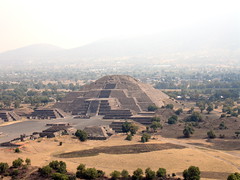 | 8 |
| 10872678793 | Great Zimbabwe | A stone-walled enclosure found in Southeast Africa. Have been associated with trade, farming, and mining. |  | 9 |
| 10872678794 | Code of Hammurabi | A collection of 282 laws. One of the first (but not THE first) examples of written law in the ancient world. | | 10 |
| 10872678795 | Hittites | An ancient Anatolian group whose empire at largest extent consisted of most of the Middle East. Some of the first two-wheeled chariots and iron. |  | 11 |
| 10872678796 | Zoroastrianism | One of the first monotheistic religions, particularly one with a wide following. It was central to the political and religious culture of ancient Persia. | | 12 |
| 10872678797 | Hellenistic | Of or influenced by the Greek Empire. A type of culture typically referred to after the conquests of Alexander the Great. | | 13 |
| 10872678798 | Pax Romana | The "Roman Peace", that is, the state of comparative concord prevailing within the boundaries of the Roman Empire from the reign of Augustus (27 B.C.E.-14 C.E.) to that of Marcus Aurelius (161-180 C.E.) |  | 14 |
| 10872678799 | Republic | A state that is not ruled by a hereditary leader (a monarchy) but by a person or persons appointed under a constitution and in some way claims to be "of the people." | | 15 |
| 10872678800 | Bread and Circuses "Give 'em the old razzel dazzel!" | A Roman bribery method of coping with class difference. Entertainment and food was offered to keep plebeians quiet without actually solving unemployment problems. |  | 16 |
| 10872678801 | Goths | An array of Germanic peoples, pushed further westward by nomads from central Asia. They in turn migrated west into Rome, upsetting the rough balance of power that existed between Rome and these people. | | 17 |
| 10872678802 | legalism | A school of Chinese philosophy. Prominent during Warring States Period. Had great influence on the policies of the Qin dynasty. Based on a pessimistic view of human nature. Social harmony could only be attained through strong government control and the imposition of strict laws, enforced absolutely. |  | 18 |
| 10872678803 | Huns | large nomadic group from northern Asia who invaded territories extending from China to Eastern Europe. They virtually lived on their horses, herding cattle, sheep, and horses as well as hunting. | | 19 |
| 10872678804 | Tang | Continuing the imperial revival started by the Sui Dynasty this dynasty that followed restored the Chinese imperial impulse four centuries after the decline of the Han, extending control along the silk route. Trade flourished and China finally reached its western limits when its forces were defeated by the imperial armies of the Muslim Abbasid Empire at the Talas River--which stopped future expansion by both empires. |  | 20 |
| 10872678805 | Yellow Turban Revolt | A 184 C.E. peasant revolt against emperor Ling of Han. Led by Daoists who proclaimed that a new era would be3ing with the fall of the Han. Although this specific revolt was suppressed, it triggered a continuous string of additional outbreaks. |  | 21 |
| 10872678806 | Silk Road | Connected China, India, and the Middle East. Traded goods and helped to spread culture. |  | 22 |
| 10872678807 | Empress Wu | the only woman to rule China in her own name, expanded the empire and supported Buddhism during the Tang Dynasty. |  | 23 |
| 10872678808 | Olmec | Mesoamerican civilization in lower Mexico around 1500 BCE to about 400 BCE focused. Most remembered for their large stone heads. |  | 24 |
| 10872678809 | Maya | Never an empire but an extensive and culturally advanced Mesoamerican society with many cities in the Yucatan. | 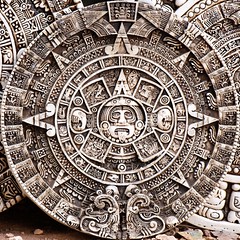 | 25 |
| 10872678810 | Neo-Assyrian | The agressive Mesopotamian empire created after an Assyrian resurgence, which initiated a series of conquests until a combined attack by Medes and Babylon defeated them resulting in the Persian Empire. | | 26 |
| 10872678811 | Mycenae | Sea-faring Greek kingdom. A major center of Greek Civilization in the 1000s BCE, centuries before Greek's "Golden Age" of Athenian influence. It's center was located about 90 km southwest of Athens. |  | 27 |
| 10872678812 | Persian Empire | Mesopotamian empire that conquered the existing Median, Lydian, and Babylonian empires, as well as Egypt and many others. Also known as the Achaemenid Empire. | | 28 |
| 10872678813 | Polis | Form of government in which power is centralized into a local city-state. |  | 29 |
| 10872678814 | Peloponnesian War | Conflict between Athens and Sparta | | 30 |
| 10872678815 | Qin | 1st unified imperial Chinese dynasty |  | 31 |
| 10872678816 | Mandate of Heaven | A political theory developed during the Zhou Dynasty of ancient China in which those in power were believed to have the the right to rule from divine authority. | | 32 |
| 10872678817 | Constantinople | City founded as the second capital of the Roman Empire; later became the capital of the Byzantine Empire |  | 33 |
| 10872678818 | Confucianism | Chinese ethical and philosophical teachings of Confucius which emphasized education, family, peace, and justice | | 34 |
| 10872678819 | Daoism | Philosophy that teaches that everything should be left to the natural order; rejects many of the Confucian ideas but coexisted with Confucianism in China | | 35 |
| 10872678820 | Babylonian Empire | Empire in Mesopotamia which was formed by Hammurabi, the sixth ruler of the invading Amorites |  | 36 |
| 10872678821 | Byzantine Empire | Eastern half of the Roman Empire that survived the fall of the Western half. |  | 37 |
| 10872678822 | Warring States Period | the period from 475 BC until the unification of China under the Qin dynasty, characterized by lack of centralized government in China. It followed the Zhou dynasty. | | 38 |
| 10872678823 | Teotihuacan | The most significant pre-Columbian Mesoamerican city. |  | 39 |
| 10872678824 | Akbar | The greatest of the Mughald Emperors. Second half of 1500s. Descendant of Timur. Consolidated power over northern India. Religiously tolerant. Patron of arts, including large mural paintings. |  | 40 |
| 10872678825 | Safavid | The _________ Empire that ruled Persia (Iran) between 1502-1736. | | 41 |
| 10872678826 | Jizya | Poll tax that non-Muslims had to pay when living within a Muslim empire | | 42 |
| 10872678827 | Constantinople | A large and wealthy city that was the imperial capital of the Byzantine empire and later the Ottoman empire, now known as Istanbul | | 43 |
| 10872678828 | Mestizo | A new racial concept that develops in Latin America following the intermixing that occurred between European colonists and the native American population. | | 44 |
| 10872678829 | Divine Right of Kings | Doctrine that states that the right of ruling comes from God and not people's consent | | 45 |
| 10872678830 | Glorious Revolution | Following the English Civil War, this event involve the British Parliament once again overthrowing their monarch in 1688-1689. James II was expelled and William and Mary were made king and queen. Marks the point at which Parliament made the monarchy powerless, gave themselves all the power, and wrote a bill of Rights. The whole thing was relatively peaceful and thus glorious. | | 46 |
| 10872678831 | Enconmienda | A labor system set up by the Spanish government where Spanish colonists could work the native Americans on their land while compensating them and agreeing to educate some of them and teach them about Christianity. The system was meant to curb exploitation but actually made the exploitation of Native Americans worse. | | 47 |
| 10872678832 | Hacienda | Spanish estates in the Americas that were often plantations. They often represent the gradual removal of land from peasant ownership and a type of feudalistic order where the owners of Haciendas would have agreements of loyalty to the capital but would retain control over the actual land. This continued even into the 20th century. |  | 48 |
| 10872678833 | Shogun | In feudal Japan, a noble similar to a duke. They were the military commanders and the actual rulers of Japan for many centuries while the Emperor was a powerless spiritual figure. | | 49 |
| 10872678834 | Samurai | A member of the warrior class in premodern feudal Japan |  | 50 |
| 10872678835 | Aborigine | The general named often used to describe the original inhabitants of Australia. |  | 51 |
| 10872678836 | Janissary | A slave soldier of the Ottoman Army | | 52 |
| 10872678837 | Sufi | A member of the more mystical third sect of Islam famous for their dance and their poetry. |  | 53 |
| 10872678838 | Enlightenment | A popular philosophical movement of the 1700s that focused on human reasoning, natural science, political and ethical philosophy. |  | 54 |
| 10872678839 | Hundred Years War | War between France and Britain, lasted 116 years, mostly a time of peace, but it was punctuated by times of brutal violence (1337 to 1453) | 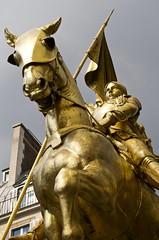 | 55 |
| 10872678840 | Colombian Exchange | The trading of various animals, diseases, and crops between the Eastern and Western hemispheres | | 56 |
| 10872678841 | triangle | From the 16th to 19th centuries, the flow of goods between the Americas, Europe in Africa is often described with what geometric shape? | | 57 |
| 10872678842 | Colonization | The expansion of countries into other countries where they establish settlements and control the people | | 58 |
| 10872678843 | Scientific Revolution | period in the 16th and 17th centuries where many thinkers rejected doctrines of the past dealing with the natural world in favor of new scientific ideas. | | 59 |
| 10872678844 | Ming | Chinese dynasty between 1368-1644. Economy flourished and the government even explored the Indian Ocean through many expeditions led by Zheng He. Ultimately they were taken over by the Manchurians from the North in 1644. |  | 60 |
| 10872678845 | Cixi | Ultraconservative empress in Qing (Manchu) dynasty China. Ruled china in the turbulent late 19th century, not as a true Empress but as an Empress Dowager. |  | 61 |
| 10872678846 | League of Nations | Diplomatic organization created after World War I. Proposed by Wilson but the US did not join. The organization is widely regarded as a huge failure. |  | 62 |
| 10872678847 | Collectivization | The process seen in the Soviet Union and Communist China to form communal work units for agriculture and manufacturing--from private hands to large, collective, government operations. |  | 63 |
| 10872678848 | Khmer Empire | Aggressive empire in Cambodia and Laos that collapsed in the 1400's when Thailand conquered Cambodia |  | 64 |
| 10872678849 | Pax Mongolica | The period of approximately 150 years of relative peace and stability created by the Mongol Empire. | | 65 |
| 10872678850 | Ghana | West African state that supplied the majority of the world's gold from 500 CE-1400's | | 66 |
| 10872678851 | Mongol Empire | Largest land empire in the history of the world, spanning from Eastern Europe across Asia. | | 67 |
| 10872678852 | Abbasid Caliphate | Descendants of the Prophet Muhammad's uncle, al-Abbas, they overthrew the Umayyad Caliphate and ruled an Islamic empire from their capital in Baghdad (founded 762) from 750 to 1258. |  | 68 |
| 10872678853 | Ashoka | Third ruler of the Mauryan Empire in India (r. 270-232 B.C.E.). He converted to Buddhism and broadcast his precepts on inscribed stones and pillars, the earliest surviving Indian writing. |  | 69 |
| 10872678854 | Asian Tigers | Collective name for South Korea, Taiwan, Hong Kong, and Singapore-nations that became economic powers in the 1970s and 1980s. | | 70 |
| 10872678855 | Aztecs | Also known as Mexica, they created a powerful empire in central Mexico (1325-1521 C.E.). They forced defeated peoples to provide goods and labor as a tax. |  | 71 |
| 10872678856 | Babylon | The largest and most important city in Mesopotamia. It achieved particular eminence as the capital of the king Hammurabi in the eighteenth century B.C.E. and the Neo-Babylonian king Nebuchadnezzar in the sixth century B.C.E. (p. 29) |  | 72 |
| 10872678857 | Byzantine Empire | Historians' name for the eastern portion of the Roman Empire from the fourth century until its downfall to the Ottomans in 1453. Famous for being a center of Orthodox Christianity and Greek-based culture. |  | 73 |
| 10872678858 | caliphate | Islamic empire ruled by those believed to be the successors to the Prophet Muhammad. |  | 74 |
| 10872678859 | Chavin | The first major urban civilization in South America (900-250 B.C.E.). Its capital was located high in the Andes Mountains of Peru. Chavin became politically and economically dominant in a densely populated region. |  | 75 |
| 10872678860 | chinampas | Raised fields constructed along lake shores in Mesoamerica to increase agricultural yields. |  | 76 |
| 10872678861 | city state | A small independent state consisting of an urban center and the surrounding agricultural territory. A characteristic political form in early Mesopotamia, Archaic and Classical Greece, Phoenicia, and early Italy. | | 77 |
| 10872678862 | colonialism | Policy by which a nation administers a foreign territory and develops its resources for the benefit of the colonial power. | | 78 |
| 10872678863 | Confucius | His doctrine of duty and public service had a great influence on subsequent Chinese thought and served as a code of conduct for government officials. Although his real name was Kongzi (551-479 B.C.E.). |  | 79 |
| 10872678864 | Crusades | Armed pilgrimages to the Holy Land by Christians determined to recover Jerusalem from Muslim rule. The Crusades brought an end to western Europe's centuries of intellectual and cultural isolation. |  | 80 |
| 10872678865 | Daoism | Chinese religion that believes the world is always changing and is devoid of absolute morality or meaning. They accept the world as they find it, avoid futile struggles, and deviate as little as possible from 'the way' or 'path' of nature. |  | 81 |
| 10872678866 | devshirme | 'Selection' in Turkish. The system by which boys from Christian communities were taken by the Ottoman state to serve as Janissaries. | | 82 |
| 10872678867 | Ethiopia | East African highland nation lying east of the Nile River. | | 83 |
| 10872678868 | Ghana | First known kingdom in sub-Saharan West Africa between the sixth and thirteenth centuries C.E. | | 84 |
| 10872678869 | Gold Coast | Region of the Atlantic coast of West Africa occupied by modern Ghana; named for its gold exports to Europe from the 1470s onward. | | 85 |
| 10872678870 | Great Zimbabwe | City, now in ruins (in the modern African country of Zimbabwe), whose many stone structures were built between about 1250 and 1450, when it was a trading center and the capital of a large state. | | 86 |
| 10872678871 | Gupta Empire | Powerful Indian state based in the Ganges Valley. It controlled most of the Indian subcontinent through a combination of military force and its prestige as a center of sophisticated culture. Often associated with a Golden Age of classical India. |  | 87 |
| 10872678872 | Harappa | Site of one of the great cities of the Indus Valley civilization of the third millennium B.C.E. It was located on the northwest frontier of the zone of cultivation, and may have been a center for the acquisition of raw materials. | | 88 |
| 10872678873 | Hinduism | Term for a wide variety of beliefs and ritual practices that have developed in the Indian subcontinent since antiquity. It has roots in ancient Vedic, Buddhist, and south Indian religious concepts and practices. | | 89 |
| 10872678874 | Hittites | A people from central Anatolia who established an empire in Anatolia and Syria in the Late Bronze Age. With wealth from the trade in metals and military power based on chariot forces, they vied with New Kingdom Egypt over Syria. | | 90 |
| 10872678875 | Holy Roman Empire | Loose federation of mostly German states and principalities, headed by an emperor who had little control over the hundreds of princes who elected him. It lasted from 962 to 1806. | | 91 |
| 10872678876 | Inca | Largest and most powerful Andean empire. Controlled the Pacific coast of South America from Ecuador to Chile from its capital of Cuzco. | | 92 |
| 10872678877 | Legalism | In China, a political philosophy that emphasized the unruliness of human nature and justified state coercion and control. The Qin ruling class invoked it to validate the authoritarian nature of their regime. |  | 93 |
| 10872678878 | Mali | Empire created by indigenous Muslims in western Sudan of West Africa from the thirteenth to fifteenth century. It was famous for its role in the trans-Saharan gold trade. | | 94 |
| 10872678879 | Mauryan Empire | The first state to unify most of the Indian subcontinent. It was founded by Chandragupta Maurya in 324 B.C.E. and survived until 184 B.C.E. From its capital at Pataliputra in the Ganges Valley it grew wealthy from taxes. |  | 95 |
| 10872678880 | Maya | Mesoamerican civilization concentrated in Mexico's Yucatan Peninsula and in Guatemala and Honduras but never unified into a single empire. Major contributions were in mathematics, astronomy, and development of the calendar. |  | 96 |
| 10872678881 | Ming | Chinese dynasty that followed the overthrow of the Yuan (Mongol) Dynasty in China. Among other things, the emperor Yongle sponsored the building of the Forbidden City and the voyages of Zheng He. It was mostly a time of vibrant economic productivity. It is regarded as the last great Chinese dynasty (1368-1644). In 1644 they fall to Manchurian (Qing Dynasty) from the North who who rule China until the Nationalist revolution in 1911. |  | 97 |
| 10872678882 | Minoan | Prosperous civilization on the Aegean island of Crete in the second millennium B.C.E. Exerted powerful cultural influences on the early Greeks. |  | 98 |
| 10872678883 | Mohenjo-Daro | Largest city of the Indus Valley civilization. It was centrally located in the extensive floodplain of the Indus River. Little is known about the political institutions of Indus Valley communities, but the large-scale implies central planning. | | 99 |
| 10872678884 | Mongols | A people of this name is mentioned as early as the records of the Tang Empire, living as nomads in northern Eurasia. After 1206 they established an enormous empire under Genghis Khan, linking western and eastern Eurasia. | | 100 |
| 10872678885 | Mughal Empire | Muslim state (1526-1857) exercising dominion over most of India in the sixteenth and seventeenth centuries. |  | 101 |
| 10872678886 | Neo-Assyrian Empire | A major Mesopotamian empire between 934-608 BCE. They used force and terror and exploited the wealth and labor of their subjects. They were an iron-age resurgence of a previous bronze age empire. | | 102 |
| 10872678887 | Neolithic | The period of the Stone Age associated with the ancient Agricultural Revolution. It follows the Paleolithic period. | | 103 |
| 10872678888 | Olmec | The first Mesoamerican civilization. Between ca. 1200 and 400 B.C.E., these people of central Mexico created a vibrant civilization that included intensive agriculture, wide-ranging trade, ceremonial centers, and monumental construction. |  | 104 |
| 10872678889 | Opium Wars | Wars between Britain and the Qing Empire (mind 1800s), caused by the Qing government's refusal to let Britain import Opium. China lost and Britain and most other European powers were able to develop a strong trade presence throughout China against their wishes. | | 105 |
| 10872678890 | Ottomans | Turkish empire based in Anatolia. Arrived in the same wave of Turkish migrations as the Seljuks. | | 106 |
| 10872678891 | Paleolithic | The period of the Stone Age associated with the evolution of humans. It predates the Neolithic period. |  | 107 |
| 10872678892 | Qin | A people and state in the Wei Valley of eastern China that conquered rival states and created the first short-lived Chinese empire (221-206 B.C.E.). Their ruler, Shi Huangdi, standardized many features of Chinese society and enslaved his subjects. | | 108 |
| 10872678893 | Qing Empire | Empire established in China by Manchus who overthrew the Ming Empire in 1644. At various times they also controlled Manchuria, Mongolia, Turkestan, and Tibet. The last emperor of this dynasty was overthrown in 1911 by nationalists. | | 109 |
| 10872678894 | Roman Republic | The period from 507 to 31 B.C.E., during which Rome was largely governed by the aristocratic Roman Senate. (p. 148) | | 110 |
| 10872678895 | Safavid Empire | Turkish-ruled Iranian kingdom (1502-1722) established by Ismail Safavi, who declared Iran a Shi'ite state. |  | 111 |
| 10872678896 | Sasanid Empire | The last of pre-Islamic Persian Empire, from 224 to 651 CE. One of the two main powers in Western Asia and Europe alongside the Roman Empire and later the Byzantine Empire for a period of more than 400 years | | 112 |
| 10872678897 | sepoy | A soldier in South Asia, especially in the service of the British. | | 113 |
| 10872678898 | Sepoy Mutiny | The revolt against the British by many different groups across India 1857 but led particularly by some of the disgruntled Indian soldiers working for the British. It caused the British government to take over more direct control of India from the British East India Company. | | 114 |
| 10872678899 | Shang | The dominant people in the earliest Chinese dynasty for which we have written records (ca. 1750-1027 B.C.E.). Ancestor worship, divination by means of oracle bones, and the use of bronze vessels for ritual purposes were major elements of this culture. |  | 115 |
| 10872678900 | Shi Huangdi | Founder of the short-lived Qin dynasty and creator of the Chinese Empire (r. 221-210 B.C.E.). He is remembered for his ruthless conquests of rival states and standardization. |  | 116 |
| 10872678901 | Song Dynasty | Empire in southern China (1127-1279) while the Jin people controlled the north. Distinguished for its advances in technology, medicine, astronomy, and mathematics. |  | 117 |
| 10872678902 | Sumerians | The people who dominated southern Mesopotamia through the end of the third millennium B.C.E. They were responsible for the creation of many fundamental elements of Mesopotamian culture-such as irrigation technology, cuneiform, and religious conceptions. | | 118 |
| 10872678903 | Taiping Rebellion | The most destructive civil war in China before the twentieth century. A Christian-inspired rural rebellion threatened to topple the Qing Empire. Leader claimed to be the brother of Jesus. | | 119 |
| 10872678904 | Tamil Kingdoms | The kingdoms of southern India, inhabited primarily by speakers of Dravidian languages, which developed in partial isolation, and somewhat differently, from the Aryan north. | | 120 |
| 10872678905 | Tang Empire | Empire unifying China and part of Central Asia, founded 618 and ended 907. The Tang emperors presided over a magnificent court at their capital, Chang'an. | | 121 |
| 10872678906 | Umayyad Caliphate | First hereditary dynasty of Muslim caliphs (661 to 750). From their capital at Damascus, the Umayyads ruled one of the largest empires in history that extended from Spain to India. Overthrown by the Abbasid Caliphate. | | 122 |
| 10872678907 | Yuan Empire | He created this dynasty in China and Siberia. Khubilai Khan was head of the Mongol Empire and grandson of Genghis Khan. | | 123 |
| 10872678908 | Zoroastrianism | A religion originating in ancient Iran. It centered on a single benevolent deity-Ahuramazda, Emphasizing truth-telling, purity, and reverence for nature, the religion demanded that humans choose sides between good and evil |  | 124 |
| 10872678909 | BBAchaemenid Empire | The name of an ancient Persian Empire (c. 550-330 BCE) which was composed of many smaller kingdoms. The realm was divided into twenty-three satrapies whose administration and taxation was managed by subordinate local rulers. |  | 125 |
| 10872678910 | Mongol Empire | an empire founded in the 12th century by Genghis Khan, which reached its greatest territorial extent in the 13th century, encompassing the larger part of Asia and extending westward to the Dnieper River in eastern Europe. | | 126 |
| 10872678911 | Ottoman Empire | Islamic state founded by Osman in northwestern Anatolia ca. 1300. After the fall of the Byzantine Empire. | | 127 |
| 10872678912 | Portuguese Empire | took lead in European exploration (sponsored by Prince Henry); went East and found gold in Africa (the Cape of Good hope) and India for spice trade | | 128 |
| 10872678913 | Qin Dynasty | the Chinese dynasty (from 246 BC to 206 BC) that established the first centralized imperial government and built much of the Great Wall | | 129 |
| 10872678914 | Qing Dynasty | the last imperial dynasty of China (from 1644 to 1912) which was overthrown by revolutionaries. Also known for its extreme isolationism. |  | 130 |
| 10872678915 | Roman Empire | Existed from 27 BCE to about 400 CE. Conquiered entire Mediterranean coast and most of Europe. Ruled by an emperor. Eventually oversaw the rise and spread of Christianity. | | 131 |
| 10872678916 | Shang Dynasty | Second Chinese dynasty (about 1750-1122 B.C.) which was mostly a farming society ruled by an aristocracy mostly concerned with war. They're best remembered for their art of bronze casting. | | 132 |
| 10872678917 | Songhay Empire | A state located in western Africa from the early 15th to the late 16th centuries following the decline of the Mali Empire. |  | 133 |
| 10872678918 | Sparta | Greek city-state that was ruled by an oligarchy, focused on military, used slaves for agriculture, discouraged the arts | | 134 |
| 10872678919 | Taj Mahal | beautiful mausoleum at Agra built by the Mogul emperor Shah Jahan (completed in 1649) in memory of his favorite wife | | 135 |
| 10872678920 | Song Dynasty | During this Chinese dynasty (960 - 1279 AD) China saw many important inventions. There was a magnetic compass; had a navy; traded with india and persia (brought pepper and cotton); paper money, gun powder; landscape black and white paintings |  | 136 |
| 10872678921 | Timbuktu | City on the Niger River in the modern country of Mali. It was founded by the Tuareg as a seasonal camp sometime after 1000. As part of the Mali empire, Timbuktu became a major major terminus of the trans-Saharan trade and a center of Islamic learning. | | 137 |
| 10872678922 | Trans Saharan trade | route across the sahara desert. Major trade route that traded for gold and salt, created caravan routes, economic benefit for controlling dessert, camels played a huge role in the trading | | 138 |
| 10872678923 | Umayyad Dynasty | Who: Governor of Syria, Muawiya, and his successors, Shi'ites, Sunnis, Kharijites, Uthman. What: Dynasty based on succession rather than election following the first period of caliphates. Continued advances in the kingdom, venturing as far as China and deep into Asia, claiming Afghanistan for a Muslim base. Fell apart due to tension in the kingdom between the Sunnis, Shi'ites, and Kharijites, the malawis (Muslim converts) and born Muslims, and the religion and state. When: 661-750 Where: Middle East, Damascus Why: Beginning of great strife in the Muslim community | | 139 |
| 10872678924 | Mughal Empire | an Islamic imperial power that ruled a large portion of Indian subcontinent which began in 1526, invaded and ruled most of Hindustan (South Asia) by the late 17th and early 18th centuries, and ended in the mid-19th century. | | 140 |
| 10872678925 | Phoenicians | Semitic-speaking Canaanites living on the coast of modern Lebanon and Syria in the first millennium B.C.E. Famous for developing the first alphabet, which was adopted by the Greeks. From major cities such as Tyre and Sidon, these merchants and sailors explored the Mediterranean, and engaged in widespread commerce. | | 141 |
| 10872678926 | Ghengis Khan | The title of Temujin when he ruled the Mongols (1206-1227). It means the 'universal' leader. He was the founder of the Mongol Empire. | | 142 |
| 10872678927 | Zhou Dynasty | A decentralized Chinese dynasty in China because of the massive size, and whose emperor was the first to claim to be a link between heaven and earth. Iron metallurgy increased in this dynasty. | | 143 |
| 10872678928 | Umayyad Caliphate | (661-750 CE) The Islamic caliphate that established a capital at Damascus, conquered North Africa, the Iberian Pennisula, Southwest Asia, and Persia, and had a bureaucracy with only Arab Muslims able to be a part of it. |  | 144 |
| 10872678929 | Sui Dynasty | (589-618 CE) The Chinese dynasty that was like the Qin Dynasty in imposing tight political discipline; this dynasty built the Grand Canal which helped transport the rice in the south to the north. |  | 145 |
| 10872678930 | Tang Dynasty | (618-907 CE) The Chinese dynasty that was much like the Han, who used Confucianism. This dynasty had the equal-field system, a bureaucracy based on merit, and a Confucian education system. |  | 146 |
| 10872678931 | Neo-Confucianism | The Confucian response to Buddhism by taking Confucian and Buddhist beliefs and combining them into this. However, it is still very much Confucian in belief. | | 147 |
| 10872678932 | Silla Dynasty | The dynasty in Korea that rallied to prevent Chinese domination in the seventh century CE. |  | 148 |
| 10872678933 | Genghis Khan | Also known as Temujin; he united the Mongol tribes into an unstoppable fighting force; created largest single land empire in history. |  | 149 |
| 10872678934 | Yuan Dynasty | (1279-1368 CE) The dynasty with Mongol rule in China; centralized with bureaucracy but structure is different: Mongols on top->Persian bureaucrats->Chinese bureuacrats. |  | 150 |
| 10872678935 | Mali | The kingdom in West Africa that followed the Kingdom of Ghana; its wealth is also based on trans-Saharan trade; this kingdom encouraged the spread of Islam. |  | 151 |
| 10872678936 | Silk Road | A system of ancient caravan routes across Central Asia, along which traders carried silk and other trade goods. |  | 152 |
| 10872678937 | MIng Dynasty | Succeeded Mongol Yuan dynasty in China in 1368; lasted until 1644; initially mounted huge trade expeditions to southern Asia and elsewhere, but later concentrated efforts on internal development within China. | | 153 |



































































































































